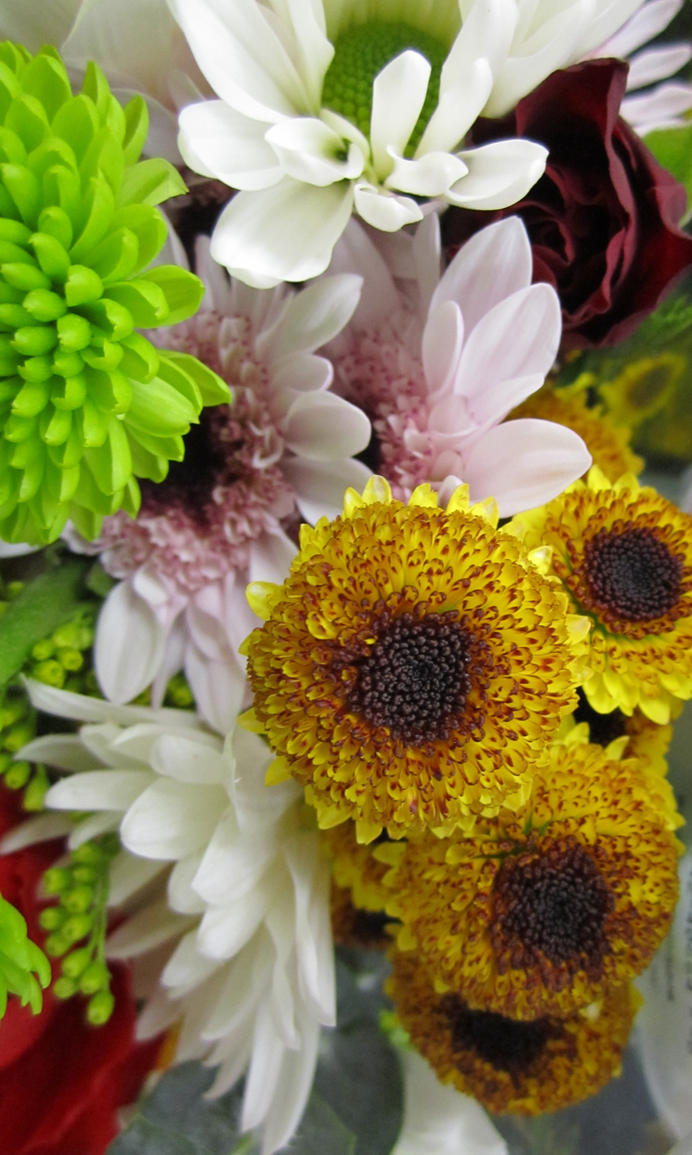Post by indifferentred on May 4, 2012 0:39:02 GMT 10
Series: Quiet Affections
Title: To War and Arms
Rating: PG
Event: Tasty Triple Jump
Words: 925
Summary: Inspired by Richard Lovelace's poem "To Lucasta, Going to the Wars," which Vivenne and Wyldon (rather anachronistically!) quote during the course of this fic and from which the title is drawn. The love triangle between a man, his wife and his duty.
In the early days of their marriage, she sees it as a competition, this pull between her, him, and his duty, and she clings on to him fiercely.
At times she wins. These are the times when his king’s kingdom is at peace (or as much at peace as any realm ever will be) and he permits himself to spend long days, weeks, months, even, at Cavall with her: riding and picnicking, loving and dancing, debating and challenging. At times like these, she can forget that he is a knight, with promises to keep that he values even higher than their wedding vows. At times like these, he is just her honourable, steady, somewhat quiet, and utterly adored husband.
At times she loses. These are the times when a messenger arrives in the blue and silver livery that mimics so well the icy cruelty of a king who will tear a man away from his wife and growing family just when they need him the most, to plunge him into the midst of quarrels not of his making. These are the times when he turns apologetically to her, half in the battlefield even as he stands in Cavall’s hall and begs her understanding, and she wants to scream with frustration and fear because it feels like she is losing him as surely as she would if he were taking another woman to his bed. It would almost be better if he were. For how can one fight a mistress whom cannot be seen or touched, or rage at a scarlet woman who cannot hear and will not answer? But her own sense of duty always intervenes and she kisses him gently goodbye and, in his absence, cares for his fief and anxiously awaits his return, all the time jealous of this ideal of chivalry that he fell in love with long before he met her. At times like these, he is still honourable (“I can accept no reward, sire…”), steady (“I’ll manage, Vi…”), quiet (and Goddess knows, she wishes he would talk about what happened in that nursery). But she finds it harder to adore him when she must live with the knowledge that he is injured - So much blood… Goddess, Wyl, there’s so much blood! - and could have died, knowing all the while, as she does, that his few grumblings are not due to pain from his wounds (even after Baird has had to reattach his arm), but because he wishes to be elsewhere, doing his duty.
And then, one day, when they are both older and wiser, and Cavall’s valleys and woods and streams have become a playground for their growing children, the realisation suddenly sinks into her bones with all the certain clarity of an icy draft of wind that no matter what, he always loses. She begins to notice the despondency in his eyes when he returns home from the battlefield or the capital to find his daughters grown and changed and leaving him behind, overflowing as they are with memories and experiences that he has not been there to share; she realises that he despises his duty for taking him away so often and so far, even as he loves and honours it. Later still, when he is half-retired and the Crown does not ask so much of him (thank the Goddess, thank Mithros…), he slips often from the warmth of their bed to keep a solemn vigil on their balcony in the tired pallor of the dawn as troop after troop of mail-clad young knights ride from the capital to war, grieving in his own muted way because he is not with them.
And so, on this morning, she follows him, wrapped in a blanket over her night-shift, and rests her head on his good shoulder, trying just as quietly to make him understand that the pain and the grief do not have to be borne alone. He remains achingly still and rigid for several long minutes and then he suddenly melts, disentangling his uninjured arm to wrap it around her waist and pull her closer. “I’ve neglected my duty to you, Vi.”
She sighs. “No.” Silence, as he looks critically out over the balcony. She tries again. “Wyl, I should have known when I married you that I wasn’t choosing an easy life. You’re a knight.”
His arm tightens around her, almost involuntarily. He still won’t look at her. “But I am also a husband and a father, and all too often during these years I have forgotten that.” It is so rare for him to confess these deep feelings, that Vivenne does not know whether it would be best to speak again, or merely to allow him to continue to unburden himself. She decides on the former. “You never forgot it. We just lost sight of each other sometimes.” A slight smile passes over her face, and she nudges him in the ribs, making him frown questioningly down on her. “And anyway - how does the poet have it? I could not love thee, dear, so much - “
He chuckles dryly and finishes her quote: “Loved I not honour more… You’re far too easy on me, Vi.”
She squeezes his hand. “I love you. What else can I do?”
He does not reply, but the kiss he presses to her lightly greying hair is an expression of gratitude, an apology, a placation and a declaration all in one, and Vivenne knows that while they might not have won yet, they at least stand a fighting chance.
Title: To War and Arms
Rating: PG
Event: Tasty Triple Jump
Words: 925
Summary: Inspired by Richard Lovelace's poem "To Lucasta, Going to the Wars," which Vivenne and Wyldon (rather anachronistically!) quote during the course of this fic and from which the title is drawn. The love triangle between a man, his wife and his duty.
In the early days of their marriage, she sees it as a competition, this pull between her, him, and his duty, and she clings on to him fiercely.
At times she wins. These are the times when his king’s kingdom is at peace (or as much at peace as any realm ever will be) and he permits himself to spend long days, weeks, months, even, at Cavall with her: riding and picnicking, loving and dancing, debating and challenging. At times like these, she can forget that he is a knight, with promises to keep that he values even higher than their wedding vows. At times like these, he is just her honourable, steady, somewhat quiet, and utterly adored husband.
At times she loses. These are the times when a messenger arrives in the blue and silver livery that mimics so well the icy cruelty of a king who will tear a man away from his wife and growing family just when they need him the most, to plunge him into the midst of quarrels not of his making. These are the times when he turns apologetically to her, half in the battlefield even as he stands in Cavall’s hall and begs her understanding, and she wants to scream with frustration and fear because it feels like she is losing him as surely as she would if he were taking another woman to his bed. It would almost be better if he were. For how can one fight a mistress whom cannot be seen or touched, or rage at a scarlet woman who cannot hear and will not answer? But her own sense of duty always intervenes and she kisses him gently goodbye and, in his absence, cares for his fief and anxiously awaits his return, all the time jealous of this ideal of chivalry that he fell in love with long before he met her. At times like these, he is still honourable (“I can accept no reward, sire…”), steady (“I’ll manage, Vi…”), quiet (and Goddess knows, she wishes he would talk about what happened in that nursery). But she finds it harder to adore him when she must live with the knowledge that he is injured - So much blood… Goddess, Wyl, there’s so much blood! - and could have died, knowing all the while, as she does, that his few grumblings are not due to pain from his wounds (even after Baird has had to reattach his arm), but because he wishes to be elsewhere, doing his duty.
And then, one day, when they are both older and wiser, and Cavall’s valleys and woods and streams have become a playground for their growing children, the realisation suddenly sinks into her bones with all the certain clarity of an icy draft of wind that no matter what, he always loses. She begins to notice the despondency in his eyes when he returns home from the battlefield or the capital to find his daughters grown and changed and leaving him behind, overflowing as they are with memories and experiences that he has not been there to share; she realises that he despises his duty for taking him away so often and so far, even as he loves and honours it. Later still, when he is half-retired and the Crown does not ask so much of him (thank the Goddess, thank Mithros…), he slips often from the warmth of their bed to keep a solemn vigil on their balcony in the tired pallor of the dawn as troop after troop of mail-clad young knights ride from the capital to war, grieving in his own muted way because he is not with them.
And so, on this morning, she follows him, wrapped in a blanket over her night-shift, and rests her head on his good shoulder, trying just as quietly to make him understand that the pain and the grief do not have to be borne alone. He remains achingly still and rigid for several long minutes and then he suddenly melts, disentangling his uninjured arm to wrap it around her waist and pull her closer. “I’ve neglected my duty to you, Vi.”
She sighs. “No.” Silence, as he looks critically out over the balcony. She tries again. “Wyl, I should have known when I married you that I wasn’t choosing an easy life. You’re a knight.”
His arm tightens around her, almost involuntarily. He still won’t look at her. “But I am also a husband and a father, and all too often during these years I have forgotten that.” It is so rare for him to confess these deep feelings, that Vivenne does not know whether it would be best to speak again, or merely to allow him to continue to unburden himself. She decides on the former. “You never forgot it. We just lost sight of each other sometimes.” A slight smile passes over her face, and she nudges him in the ribs, making him frown questioningly down on her. “And anyway - how does the poet have it? I could not love thee, dear, so much - “
He chuckles dryly and finishes her quote: “Loved I not honour more… You’re far too easy on me, Vi.”
She squeezes his hand. “I love you. What else can I do?”
He does not reply, but the kiss he presses to her lightly greying hair is an expression of gratitude, an apology, a placation and a declaration all in one, and Vivenne knows that while they might not have won yet, they at least stand a fighting chance.









 Maybe once we'd have seen it during Smackdown!
Maybe once we'd have seen it during Smackdown!